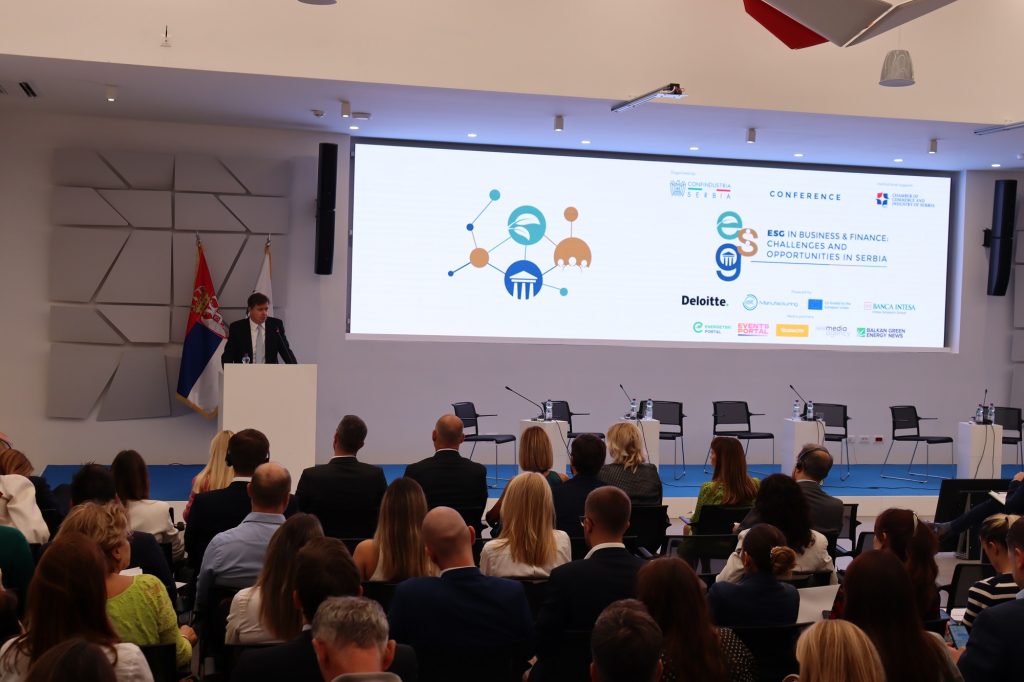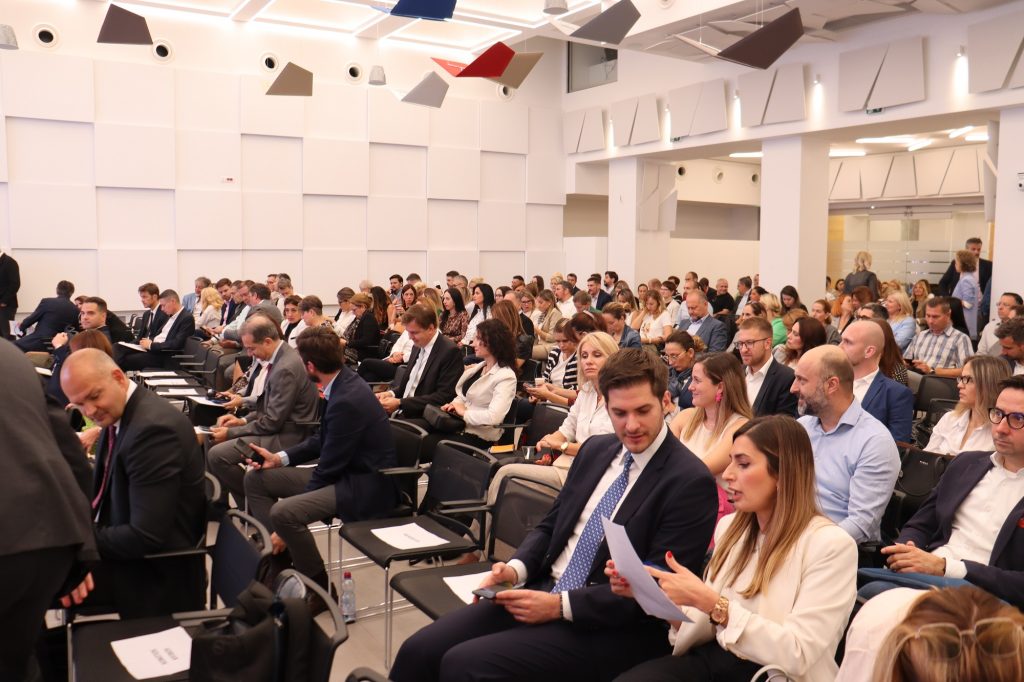The implementation of ESG principles in business (Environmental, Social, Governance) has undoubtedly become imperative for success. To make this process efficient, timely ESG reporting on the impact of business operations on the environment (Environmental), social environment (Social), and the way a company manages its organization (Governance) is essential.
These crucial topics were the focus of the “ESG in Business and Finance: Challenges and Opportunities in Serbia” conference organized by Confindustria Serbia, held at the Serbian Chamber of Commerce. This event provided a platform for professionals and leaders in sustainability, ESG management, corporate responsibility, energy, environmental protection, procurement, operations, finance, and data management to discuss the challenges posed by ESG in business.
At the outset of the conference, addresses were delivered by Katarina Ocokoljić, Secretary of the Association of Financial Institutions of the Serbian Chamber of Commerce, Patrizio Dei Tos, President of Confindustria Serbia; Damir Vukotić, Partner at Deloitte Risk Advisory; and His Excellency Luka Gori, the Ambassador of Italy in Serbia.
The insurance industry plays a key role in the economy and in integrating ESG frameworks into business strategies and corporate culture. DDOR osiguranje, as part of a large European financial system, the Unipol Group, has ambitiously set ESG goals in its Strategic Plan 2022-2024, Sustainability Policy, Climate Strategy, and other contributions to the UN’s Sustainable Development Goals for 2030.
As Leo Pandžić, Director of the Sustainability Department at DDOR osiguranje, emphasized during the conference, we must be pragmatic and ensure that the green transition is economically sustainable.
“The “green agenda” is a current global topic, and it is essential to explain to people that even the smallest actions they take can contribute to achieving these goals. The insurance sector will play a significant role in this effort. DDOR is adopting the standards of its parent company and has the opportunity to introduce the latest state-of-the-art technologies and know-how to support environmental conservation and the well-being of all stakeholders in the Serbian insurance market”, said Pandžić.
In recent years, areas such as ecology, social responsibility, and governance (ESG) have rapidly evolved in response to increasing global pressure to address critical issues such as climate change, social inequality, and corporate governance. Regulatory bodies worldwide have been tightening their oversight and setting stricter ESG standards, particularly following the Paris Agreement. This trend is further amplified by financial institutions progressively integrating ESG criteria into their investment decisions, risk management processes, and product offerings. This shift has a cascading effect on companies, motivating them to adopt ESG standards not only as a compliance necessity but as a strategic tool for risk reduction, investor engagement, operational efficiency, and long-term sustainability.
Unipol has been a leader in implementing ESG standards in business processes in Italy, focusing on mitigating ESG risks, investments, risk assessment, and property care while proactively contributing to mitigating the effects of climate change through various projects. Following the example of its parent group, DDOR osiguranje is making a significant contribution in this area and has been recognized for its efforts with the Frank Delneri Award presented by Confindustria Serbia.
In light of the growing focus on sustainability, business organizations are under pressure to integrate ESG goals into their business strategies. It’s not just a trend; it’s a necessity. DDOR osiguranje understands that this is the key to creating value for employees and the broader community. Through the integration of the five UN Sustainable Development Goals of Agenda 2030, DDOR aims to contribute to environmental protection, the preservation of natural resources, and the advancement of society.


